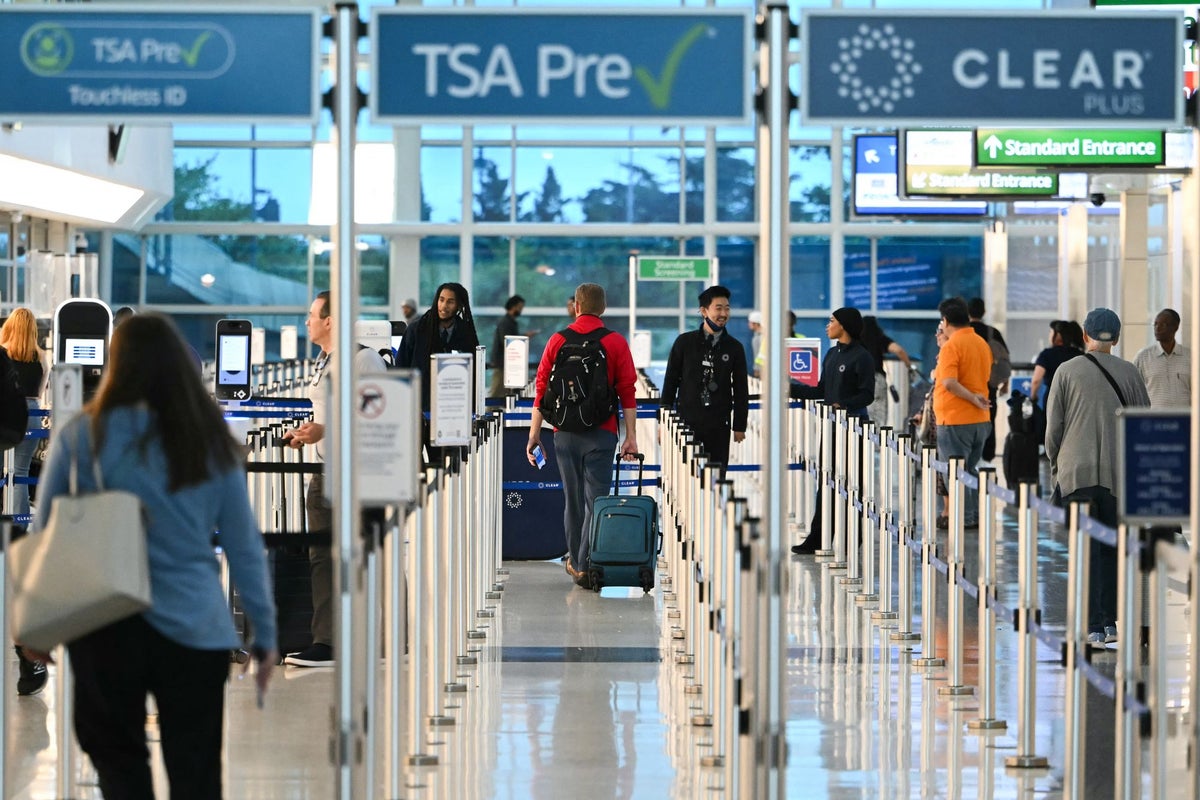
The ongoing federal government shutdown is severely impacting the US travel industry, with its detrimental effects intensifying as the political deadlock in Congress persists.
Travellers are increasingly cancelling planned trips and opting to avoid airports until US lawmakers can agree on a resolution to reopen the government, a prospect that could still be weeks away.
This prolonged impasse means essential personnel, including air traffic controllers and security screeners, continue to work without pay, leading to a rise in sick calls and staffing shortages.
Concerns are mounting ahead of the upcoming Columbus/Indigenous People’s Day holiday weekend, the first major travel period since the shutdown commenced nine days ago on October 1.
This disruption coincides with the peak corporate travel season, at a time when the industry is already struggling to reach its full potential, according to Geoff Freeman, president of the US Travel Association.
Mr Freeman warned of the broader implications, stating: “If we introduce concern into the system — concern about delays, concern about cancellations, concern about TSA being less efficient — we’re leading people to stay in the office.”
He added that this creates “another reason for people to stay home, whether it’s Americans staying home or foreign travellers avoiding the United States.”
The United States is the only travel market expected to see a decline in spending by foreign tourists in 2025, as inbound visits are expected to decrease 6.3 per cent year-over-year to 67.9 million, according to data from US Travel and Oxford Economics. Domestic travel is expected to increase 1.9 per cent this year.
Travellers still planning to visit the US have heightened concern about what the shutdown means for their vacation.
“There is some anxiety from ‘What does that mean? Does that mean that we cannot fly? Are people not able to enter the country?’ All those kinds of questions are coming up,” said Peter van Berkel, president of Travalco, an inbound tour operator.
Some travellers abroad are now hesitant to book, van Berkel said.
So far, the shutdown is not affecting Delta Air Lines’s DAL.N operations, CEO Ed Bastian told CNBC Thursday following its earnings, which showed that sales have accelerated in recent weeks.
Nearly 12,000 flight delays from Monday to early Wednesday were in part tied to Federal Aviation Administration slowdowns due to controller absences, while about 200 flights were canceled.
Air traffic control staffing issues have emerged sooner in this shutdown than the last major halt to government funding in 2019, leading to unexpected shortages in cities around the country.
If it continues, travellers will see “erosion of service” as frustrated air traffic controllers and TSA officers get tired and call in sick, said Sheldon Jacobson, a University of Illinois professor who helped design TSA Pre-Check.
“The largest shutdown in history was 35 days in the first President Trump term. Are we going to see 35 days again? Right now, there’s no evidence of it being reconciled and ended, but these things will change very, very quickly and unpredictably,” he said.
Arizona-based travel agent Sonia Bhagwan said two clients have asked if they should cancel their Thanksgiving and Christmas vacations to Hawaii.
Wayne Milano, 44, of Monmouth County, New Jersey, said he canceled a business trip to India and will not fly until the stalemate is resolved. Citing bad luck with delays and cancellations, Milano told Reuters air travel is out of the question for now.
“I’m at that point where I’m like, I’m not even going to chance it for the first week or two, let’s just see how things play out.”
